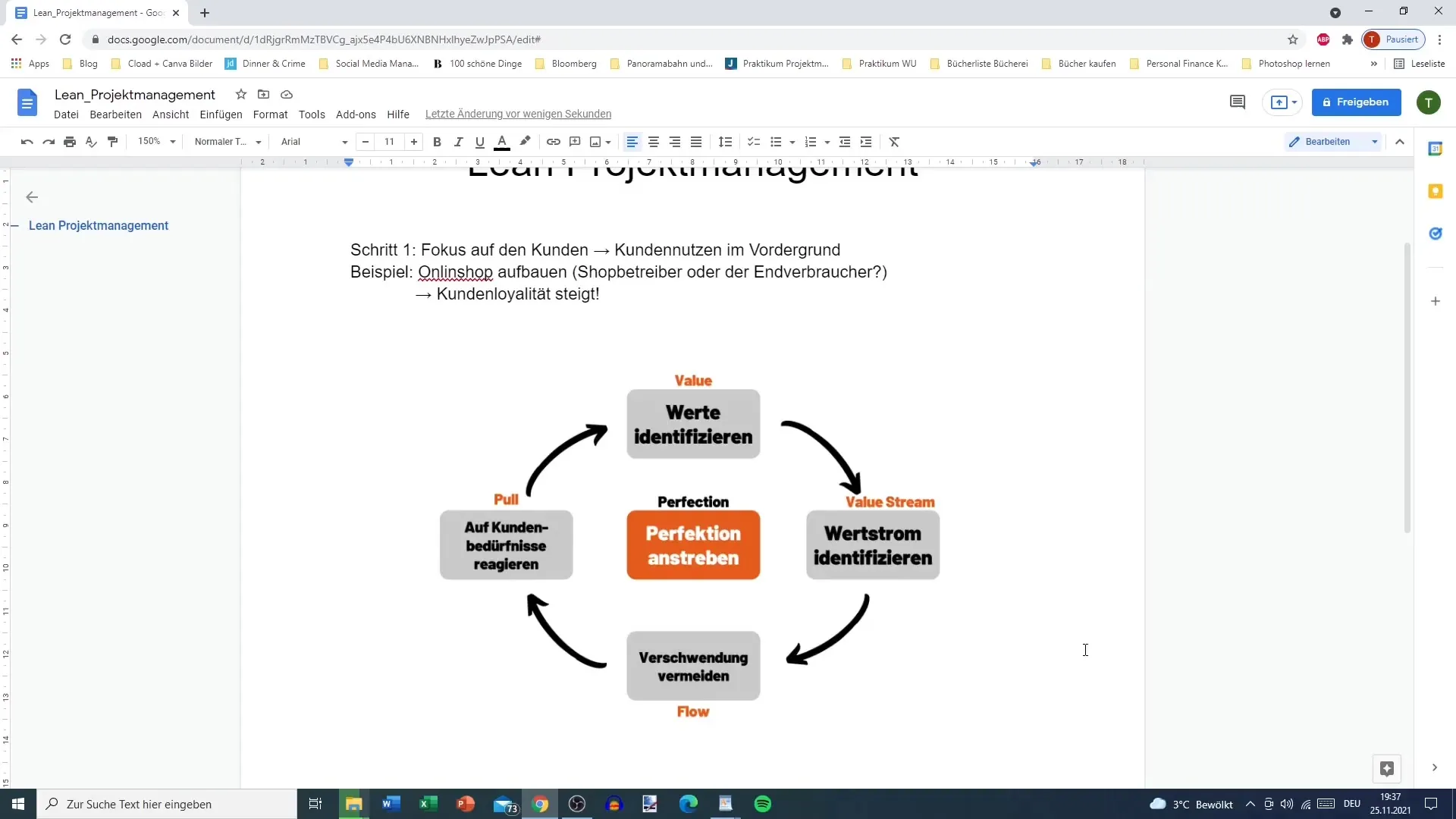Efficient project management is an art in itself. In Lean project management, the focus is on maximizing value for the customer and minimizing waste. In particular, step 2, the development of the value stream, is crucial for the success of a project. This guide will help you understand and apply the essential aspects and practical steps for effectively developing the value stream.
Key Takeaways
The development of the value stream involves identifying both value streams: the benefit for the shop owner and the satisfaction of the end consumer. Marketing personas aid in the development process. Kanban is an effective tool for visualizing and managing work steps.
Step-by-Step Guide to Developing the Value Stream
The process of developing the value stream starts with understanding the needs of your stakeholders. Here are the individual steps you should follow:
Step 1: Identify the value
The first step is to identify the value for both stakeholders: the shop owner and the end consumer. You should clarify what each party understands as "value" and what requirements need to be fulfilled.

Step 2: Analysis of the two value streams
Now, it's important to analyze both value streams in detail. The first value stream relates to project execution: the shop should be delivered on time, within budget, and with all necessary requirements. The second value stream focuses on the satisfaction of the end consumer, which becomes measurable only after the shop's launch.
Step 3: Creation of Personas
To better understand the needs, create a so-called persona. This represents the average customer, in this case for example "Heinz", 40 years old, owner of a fruit store looking to expand online. Ask questions about his lifestyle, preferences, family, and income.
Step 4: Visualizing the value stream
For better visualization, using Kanban methods is recommended. Create a Kanban board with columns "To Do", "In Progress", and "Done". Place the various tasks there and move them according to their progress. This helps you keep track and ensure that both value streams are effectively addressed.
Step 5: Implementation and Monitoring
Implement the defined tasks into practice. Continuously monitor progress and make adjustments to your approach where necessary. It is important to remain flexible and be able to respond to changes.
Step 6: Success Evaluation and Feedback
After implementation, it is crucial to analyze the results and gather feedback. Focus on how well the solutions meet the needs of both the shop owner and the end consumer.
Summary
Developing the value stream is a key step in Lean project management. By identifying the needs of both stakeholders, creating personas, and using Kanban for visualization, you can ensure that your project meets the requirements of the shop owner and the expectations of the end consumer. Continuous monitoring and feedback are also crucial for long-term success.
Frequently Asked Questions
How do I identify value for the customer?The value for the customer is determined by analyzing their needs and expectations.
What are personas and how do they help in project management?Personas are fictional characters representing typical traits of your target audience and aiding in a better understanding of their needs.
How can Kanban contribute to visualizing the value stream?Kanban allows for a visual representation of tasks and their progress, making organization and prioritization easier.


